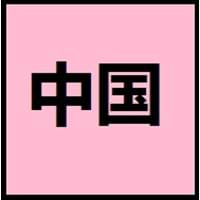Irish vs Chinese
Countries
European Union, Ireland
China, Hong Kong, Macau, Singapore, Taiwan
National Language
Ireland
China, Taiwan
Second Language
Ireland
Republic of Brazil
Speaking Continents
Europe
Asia
Minority Language
United Kingdom
Indonesia, Malaysia
Regulated By
Foras na Gaeilge
Chinese Language Standardization Council, National Commission on Language and Script Work, Promote Mandarin Council
Interesting Facts
- In Irish language, there are no exact words for "yes" or "no".
- There are different set of numbers for counting humans and another set for counting non-humans in Irish Language.
- Chinese language is tonal, since meaning of a word changes according to its tone.
- In Chinese language, there is no grammatical distinction between singular or plural, no declination of verbs according to tense, mood and aspect.
Similar To
Not Available
Not Available
Derived From
Not Available
Not Available
Alphabets in
Irish-Alphabets.jpg#200
Chinese.jpg#200
Scripts
Latin
Chinese Characters and derivatives
Writing Direction
Left-To-Right, Horizontal
Left-To-Right, Horizontal, Top-To-Bottom
Hello
Dia dhuit
您好 (Nín hǎo)
Thank You
Go raibh maith agat
谢谢 (Xièxiè)
How Are You?
Conas atá tú ?
你好吗? (Nǐ hǎo ma?)
Good Night
Oíche mhaith
晚安 (Wǎn'ān)
Good Evening
Tráthnóna maith duit
晚上好 (Wǎnshàng hǎo)
Good Afternoon
Tráthnóna maith duit
下午好 (Xiàwǔ hǎo)
Good Morning
Dia dhuit ar maidin
早安 (Zǎo ān)
Please
le do thoil
请 (Qǐng)
Sorry
Tá brón orm
遗憾 (Yíhàn)
I Love You
Is breá liom thú
我爱你 (Wǒ ài nǐ)
Excuse Me
Gabh mo leithscéal
劳驾 (Láojià)
Dialect 1
Connacht Irish
Mandarin
Where They Speak
Connacht
China, Malaysia, Singapore, Taiwan
How Many People Speak
Not Available
Dialect 2
Munster Irish
Wu
Where They Speak
Munster
China, United States of America
How Many People Speak
Not Available
Dialect 3
Ulster Irish
Yue
Where They Speak
Ulster
China, Malaysia, Singapore, Vietnam
How Many People Speak
Not Available
Speaking Population
Not Available
Native Name
Gaeilge (na hÉireann) / An Ghaeilge
中文 (zhōngwén)
Alternative Names
Erse, Gaeilge, Gaelic Irish
Not Available
French Name
irlandais moyen
chinois
German Name
Mittelirisch
Chinesisch
Pronunciation
[ˈɡeːlʲɟə]
Not Available
Ethnicity
Irish people
Han
Language Family
Indo-European Family
Sino-Tibetan Family
Subgroup
Celtic
Not Available
Branch
Goidelic
Not Available
Early Forms
Primitive Irish, Old Irish, Middle Irish, Classical Irish, Irish
No early forms
Standard Forms
An Caighdeán Oifigiúil
Standard Chinese
Language Position
Not Available
Signed Forms
Irish Sign Language
Wenfa Shouyu 文法手語 ("Grammatical Sign Language", Signed Mandarin (Taiwan))
Scope
Individual
Individual
ISO 639 6
Not Available
Not Available
Glottocode
iris1253
sini1245
Linguasphere
50-AAA
79-AAA
Language Type
Living
Living
Language Linguistic Typology
Verb-Subject-Object
Subject-Verb-Object
Language Morphological Typology
Fusional
Analytic, Isolating
Irish and Chinese Language History
Comparison of Irish vs Chinese language history gives us differences between origin of Irish and Chinese language. History of Irish language states that this language originated in c. 750 whereas history of Chinese language states that this language originated in 1250 BC. Family of the language also forms a part of history of that language. More on language families of these languages can be found out on Irish and Chinese Language History.
Irish and Chinese Greetings
People around the world use different languages to interact with each other. Even if we cannot communicate fluently in any language, it will always be beneficial to know about some of the common greetings or phrases from that language. This is where Irish and Chinese greetings helps you to understand basic phrases in Irish and Chinese language. Irish word for "Hello" is Dia dhuit or Chinese word for "Thank You" is 谢谢 (Xièxiè). Find more of such common Irish Greetings and Chinese Greetings. These greetings will help you to be more confident when conversing with natives that speak these languages.
Irish vs Chinese Difficulty
The Irish vs Chinese difficulty level basically depends on the number of Irish Alphabets and Chinese Alphabets. Also the number of vowels and consonants in the language plays an important role in deciding the difficulty level of that language. The important points to be considered when we compare Irish and Chinese are the origin, speaking countries, language family, different greetings, speaking population of these languages. Want to know in Irish and Chinese, which language is harder to learn? Time required to learn Irish is 36 weeks while to learn Chinese time required is 88 weeks.





